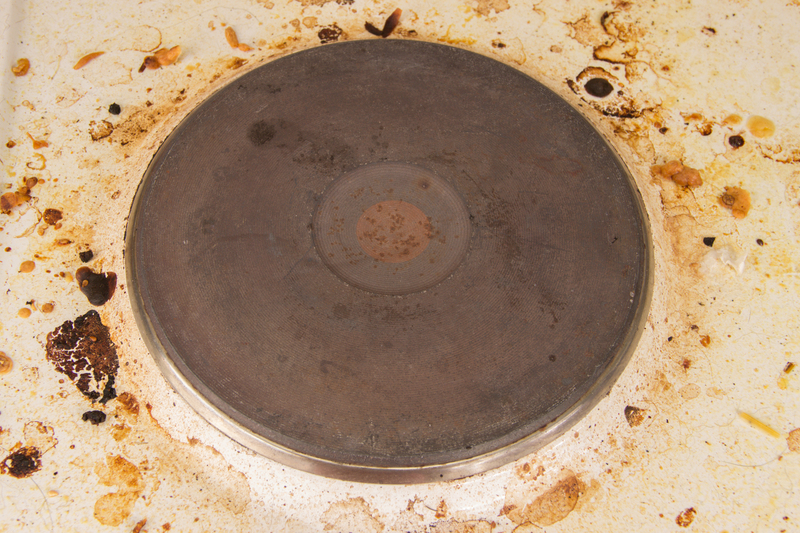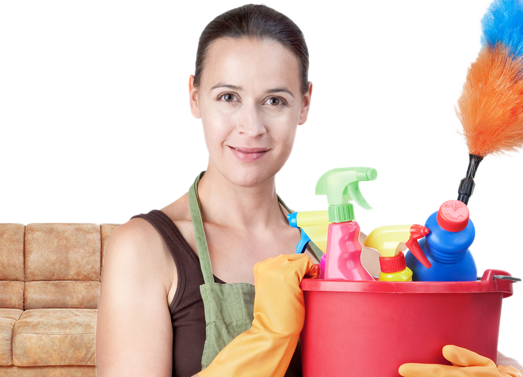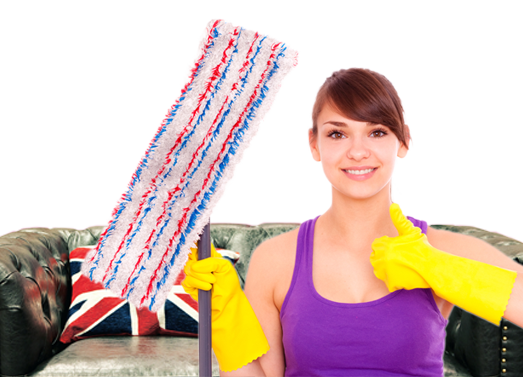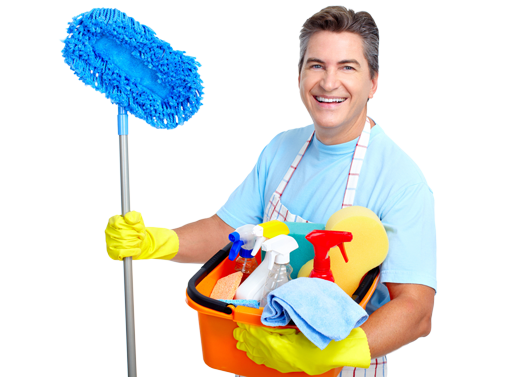Effective Cleaning Techniques for Carpets and Hard Floors
Posted on 20/06/2025

Effective Cleaning Techniques for Carpets and Hard Floors
Maintaining a clean home or workspace goes beyond simple aesthetics--it is crucial for health, comfort, and the longevity of your flooring. Whether you have luxurious carpets or pristine hard floors, adopting the right cleaning routines and methods makes all the difference. This comprehensive guide delves into the most effective cleaning techniques for carpets and hard floors, offering practical advice for each scenario.
- Carpet Cleaning: Why It Matters
- Daily Maintenance for Carpets
- Deep Cleaning Methods for Carpets
- Carpet Stain Removal Techniques
- Hard Floor Cleaning: An Overview
- Routine Maintenance for Hard Floors
- Deep Cleaning Techniques for Hard Flooring
- Specialty Cleaning for Different Hard Floors
- Eco-Friendly Cleaning Tips
- Common Mistakes and How to Avoid Them
- When to Call a Professional
- FAQs on Carpet and Hard Floor Care
Carpet Cleaning: Why It Matters
Clean carpets do much more than enhance your room's appearance. Regular carpet cleaning methods safeguard your flooring investment, improve indoor air quality, and eliminate pollutants, allergens, and harmful microbes. Properly cared-for carpets can also reduce odors and prolong their usable life, making regular cleaning both a sanitary and economical measure.
Daily Maintenance for Carpets
- Vacuum Regularly: Daily or every-other-day vacuuming is the cornerstone of any effective carpet care routine. Select a vacuum with strong suction and a high-efficiency particulate air (HEPA) filter for the best results.
- Promptly Remove Debris: Address dirt, crumbs, and hair as they appear to prevent them from being ground into carpet fibers.
- Spot Clean: Immediately blot and treat spills to stop stains from setting. Avoid scrubbing, as this can damage fibers.
- Use Rugs and Mats: Placing mats at entrances traps dust and dirt before it reaches your carpets--reducing overall soiling and wear.
Deep Cleaning Methods for Carpets
While regular maintenance keeps surface dirt at bay, deep cleaning removes embedded grime and refreshes the entire carpet. Consider these advanced carpet cleaning techniques:
- Hot Water Extraction (Steam Cleaning): This method uses high-pressure hot water to penetrate deep into carpet fibers. The water--often coupled with a safe detergent--is injected and immediately vacuumed, loosening stubborn dirt. Most professionals recommend steam cleaning every 6-12 months.
- Dry Carpet Cleaning: This low-moisture process involves spreading specialized cleaning powders or compounds onto the carpet, then working them in with a machine. Once the dirt is absorbed, both powder and grime are vacuumed away. This method is ideal for delicate carpets or environments where rapid drying is important.
- Shampooing: Carpet shampooing uses a foamy chemical solution, which is scrubbed into the fibers and then vacuumed after it dries. This traditional method is effective but can leave residue, so thorough rinsing is key.
- Encapsulation Cleaning: In this modern approach, polymers in the encapsulation detergent capture and crystalize soil particles, which are easily vacuumed after drying. It leaves less residue, dries quickly, and is an excellent option for commercial carpets.
Carpet Stain Removal Techniques
Stains are an inevitable part of daily life, but armed with the right carpet stain removal methods, you can tackle almost any blemish:
- Blot, Don't Rub: Gently blot spills with a clean, absorbent towel. Rubbing can spread stains and damage fibers.
- Use Appropriate Cleaners: For organic stains (food, drink, pet accidents), use enzyme-based cleaners. For ink or dye, test a solvent cleaner on a hidden area first.
- Homemade Solutions: For quick fixes, mix a tablespoon of dish liquid and vinegar with two cups of warm water. Apply sparingly, blotting between applications.
- Stubborn Stains Need Repeat Treatments: Some stains--like wine or coffee--might require several rounds of cleaning for complete removal.
Hard Floor Cleaning: An Overview
Whether you have hardwood, laminate, vinyl, tile, or stone, effective hard floor cleaning techniques are vital for floor durability and cleanliness. Each type of hard flooring requires specific approaches, but general maintenance is universally beneficial.
Routine Maintenance for Hard Floors
- Sweep or Dust Mop Daily: This prevents abrasive particles from scratching the floor's finish.
- Vacuum with a Soft-Bristle Attachment: Especially for grooves or textured floors, vacuuming removes hidden dust and allergens.
- Wipe Up Spills Immediately: Moisture can seep into seams or under surfaces, causing stains or warping.
- Use Protective Floor Mats: Place mats near entrances and high-traffic zones to trap dirt and moisture.
Deep Cleaning Techniques for Hard Flooring
Periodic thorough cleaning ensures your hard floors remain beautiful and hygienic:
- Mopping: Use a damp (not wet) mop and a pH-neutral cleaner appropriate for your floor type. Excess water can be damaging, especially for wood or laminate.
- Steam Cleaning: Suitable for sealed tile or vinyl. The high temperature sanitizes and lifts grime without chemicals. Do not use on hardwood.
- Buffing or Polishing: Restores shine to floors like hardwood, linoleum, or marble. A buffer should be used as recommended by the flooring manufacturer.
- Grout Cleaning: For tile floors, scrub grout lines with a paste of baking soda and water, then rinse with vinegar for effective stain removal.
Specialty Cleaning for Different Hard Floor Types
Not all hard floors are created the same. Here are expert tips for best cleaning practices for various hard floor types:
-
Hardwood Floors:
- Avoid excessive water--use a microfiber mop.
- Never use vinegar, which can dull finish over time.
- Consider reapplying a finish or wax as needed for extra protection.
-
Laminate:
- Water is laminate's enemy--always wring out mops thoroughly.
- Do not use polish or wax.
- Clean with laminate-specific products for best results.
-
Vinyl:
- Use a mild cleanser--avoid abrasive tools or solvents.
- Mop with warm water and dry thoroughly.
-
Tile and Stone:
- Use a slightly damp mop and pH-neutral cleaners.
- Seal grout regularly for stain-resistance.
- For natural stone, avoid acidic solutions.
Eco-Friendly Cleaning Tips for Carpets and Hard Floors
Green cleaning techniques are not only effective but healthier for you and the environment. Here are some sustainable cleaning options:
- Baking Soda and Vinegar: Both are excellent for stain removal and deodorizing on carpets and hard floors. Always test vinegar on a hidden spot to avoid etching.
- Microfiber Technology: Reusable microfiber cloths trap more dirt and bacteria than traditional cotton and require less water and chemicals.
- DIY Cleaners: Mix 1 part white vinegar with 3 parts water for an all-purpose cleaner (avoid on stone or wood).
- Use Less Water and Fewer Chemicals: Overuse can damage floors and harm indoor air quality.
Common Cleaning Mistakes and How to Avoid Them
- Using the Wrong Product: Ensure your cleaning supplies match your floor type--harsh chemicals or excess water can cause irreparable harm.
- Neglecting Regular Maintenance: Letting dirt build up makes deep cleaning harder and reduces flooring life expectancy.
- Over-wetting Carpets or Wood: Excess moisture leads to mold, mildew, and warping.
- Skipping the Test Patch: Always spot test new products to avoid discoloration or texture changes.
When to Call a Professional for Floor and Carpet Cleaning
Even with the best cleaning methods for carpets and hard floors, sometimes professional help is needed. Consider hiring certified cleaners when:
- Stubborn Stains Persist: Professionals have advanced equipment and stain-treating solutions.
- Regular Deep Cleaning is Due: At least once or twice a year, invest in a full-scale professional clean for both carpets and hard floors.
- Dealing with Restoration Needs: Flooding, smoke, or pet damage may require restoration expertise.
- Large Commercial Spaces: Efficiency and quality control improve with professional teams for bigger jobs.
FAQs on Carpet and Hard Floor Cleaning Techniques
-
How often should I clean my carpets?
Vacuum at least twice a week, and perform a deep clean every 6-12 months for best results. -
Can you steam clean hardwood floors?
No. Avoid steam on wood, as moisture can damage and warp the planks. Use manufacturer-recommended cleaners instead. -
What's the best method for tile and grout cleaning?
Scrub grout with a paste of baking soda and water, then apply vinegar for a sparkling finish. For tiles, use a non-acidic cleaner for regular maintenance. -
Are commercial cleaning products safe for my home?
Many are safe if used as directed, but always check compatibility with your floor type and consider eco-friendly options wherever possible. -
How do I prevent my carpets and floors from getting dirty so quickly?
Use entryway mats, enforce a no-shoes policy, vacuum frequently, and set up routine cleanings for a consistently clean appearance.

Conclusion: Achieving Clean, Long-Lasting Carpets and Hard Floors
Effective cleaning techniques for carpets and hard floors not only preserve the appearance and hygiene of your spaces, but also extend the life and value of your flooring investment. By adopting a rigorous routine and selecting the right strategies for your floor type, you can enjoy a consistently clean, healthy, and attractive living environment. Whether tackling everyday maintenance or periodic deep cleaning, these proven methods ensure your carpets and hard floors remain in tip-top shape for years to come.
Try implementing these best cleaning tips and see the remarkable difference in your home or workplace today!
Latest Posts
Creating a Safe and Fresh Atmosphere Indoors
Design an Organised Small Wardrobe with Minimal Effort
Unleash Innovation to Conquer Cleaning Challenges





